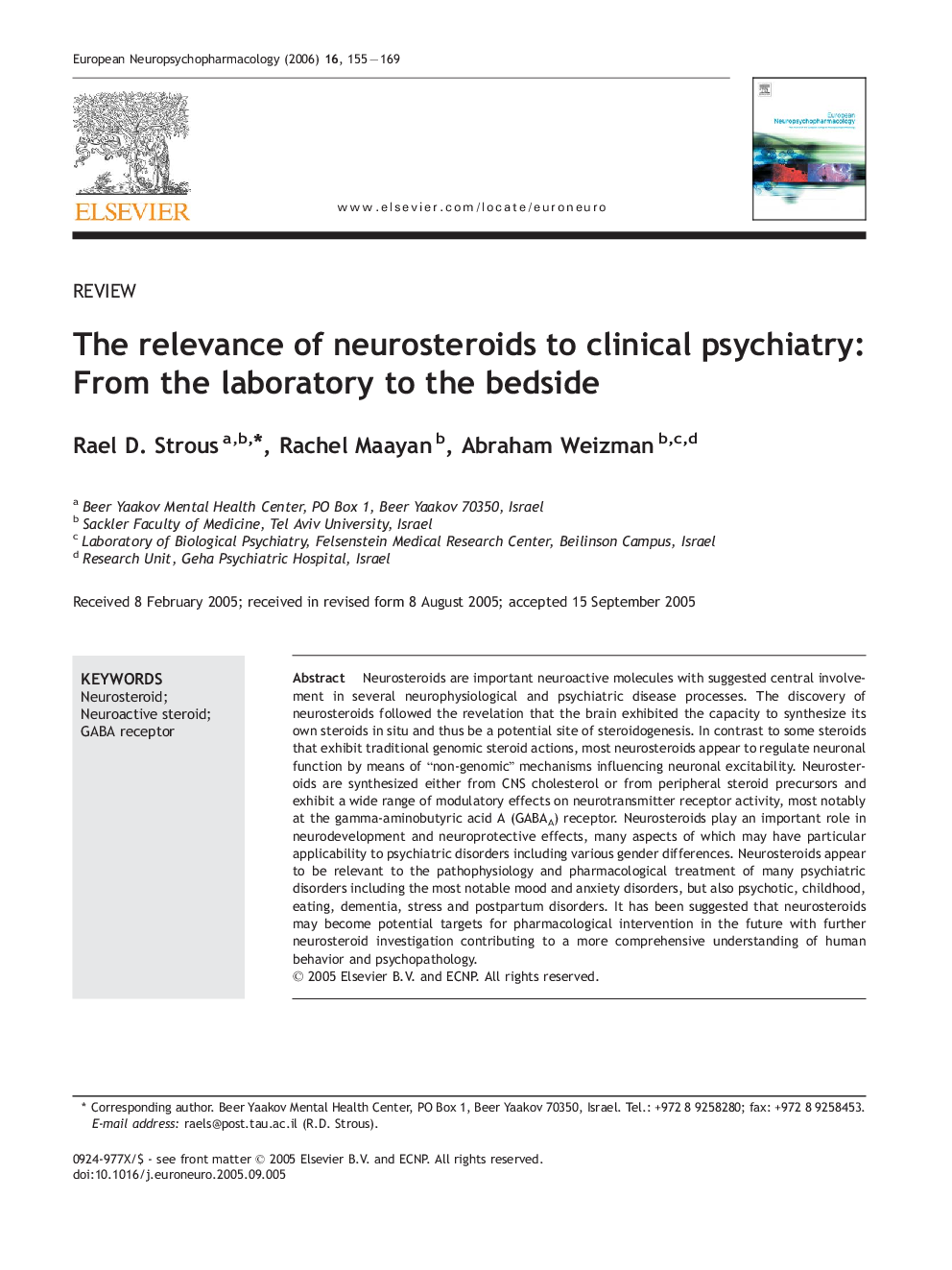| Article ID | Journal | Published Year | Pages | File Type |
|---|---|---|---|---|
| 321667 | European Neuropsychopharmacology | 2006 | 15 Pages |
Neurosteroids are important neuroactive molecules with suggested central involvement in several neurophysiological and psychiatric disease processes. The discovery of neurosteroids followed the revelation that the brain exhibited the capacity to synthesize its own steroids in situ and thus be a potential site of steroidogenesis. In contrast to some steroids that exhibit traditional genomic steroid actions, most neurosteroids appear to regulate neuronal function by means of “non-genomic” mechanisms influencing neuronal excitability. Neurosteroids are synthesized either from CNS cholesterol or from peripheral steroid precursors and exhibit a wide range of modulatory effects on neurotransmitter receptor activity, most notably at the gamma-aminobutyric acid A (GABAA) receptor. Neurosteroids play an important role in neurodevelopment and neuroprotective effects, many aspects of which may have particular applicability to psychiatric disorders including various gender differences. Neurosteroids appear to be relevant to the pathophysiology and pharmacological treatment of many psychiatric disorders including the most notable mood and anxiety disorders, but also psychotic, childhood, eating, dementia, stress and postpartum disorders. It has been suggested that neurosteroids may become potential targets for pharmacological intervention in the future with further neurosteroid investigation contributing to a more comprehensive understanding of human behavior and psychopathology.
